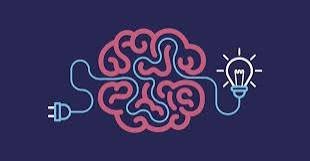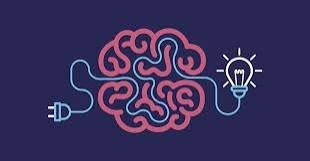Unraveling the Mystery of Human Memory: What Defines Our Past?
What if your memories shaped not just your past, but who you are today? Memories are the threads that weave the fabric of our identity, allowing us to relive moments, learn from experiences, and plan for the future. But what exactly are memories, and how do they work? Let’s dive into the fascinating world of human memory, explore five key facts, and discover how to manage this incredible mental archive.

First lets define what memory is
Memories are the brain’s ability to encode, store, and retrieve information about past experiences. They’re not just snapshots of events but complex reconstructions influenced by emotions, attention, and context. From the smell of your grandmother’s cooking to the thrill of your first bike ride, memories define how we perceive the world and ourselves.
Five Fascinating Facts About Human Memory
Memory is Multi-Faceted: Human memory consists of sensory memory (brief, fleeting impressions), short-term memory (temporary storage), and long-term memory (lasting impressions). Each plays a unique role in how we process information.
Memories Are Not Perfect: Our brains don’t store memories like video recordings. They’re reconstructed each time we recall them, often altered by emotions or new information.
Sleep Boosts Memory: During sleep, the brain consolidates memories, transferring short-term information to long-term storage, making rest crucial for learning.
Emotions Strengthen Memories: Emotionally charged events, like a wedding or a loss, are often remembered more vividly due to the amygdala’s role in memory processing.
Memory Declines with Age: As we age, the brain’s ability to form and retrieve memories can weaken, but mental exercises and a healthy lifestyle can slow this decline.

Source: feepixz
**Managing Human MemorieMemoriess
Managing memories effectively can enhance learning and emotional well-being. Here are practical tips: **
Practice Active Recall: Regularly teWhat if your memories shaped not just your past, but who you are today? Memories are the threads that weave the fabric of our identity, allowing us to relive moments, learn from experiences, and plan for the future. But what exactly are memories, and how do they work? Let’s dive into the fascinating world of human memory, explore five key facts, and discover how to manage this incredible mental archive.
Defining Memories
Memories are the brain’s ability to encode, store, and retrieve information about past experiences. They’re not just snapshots of events but complex reconstructions influenced by emotions, attention, and context. From the smell of your grandmother’s cooking to the thrill of your first bike ride, memories define how we perceive the world and ourselves.

Image: Freepoxz
Five Fascinating Facts About Human Memory
Memory is Multi-Faceted:
Human memory consists of sensory memory (brief, fleeting impressions), short-term memory (temporary storage), and long-term memory (lasting impressions). Each plays a unique role in how we process information.
Memories Are Not Perfect: Our brains don’t store memories like video recordings. They’re reconstructed each time we recall them, often altered by emotions or new information.
Sleep Boosts Memory: During sleep, the brain consolidates memories, transferring short-term information to long-term storage, making rest crucial for learning.
Emotions Strengthen Memories: Emotionally charged events, like a wedding or a loss, are often remembered more vividly due to the amygdala’s role in memory processing.
Memory Declines with Age: As we age, the brain’s ability to form and retrieve memories can weaken, but mental exercises and a healthy lifestyle can slow this decline.

Managing Human MemorieMemorist yourself on information to strengthen memory retention.
Stay Organized: Use tools like journals or apps to externalize memories, reducing cognitive overload.
Prioritize Sleep: Aim for 7-9 hours of quality sleep to support memory consolidation.
Engage in Mindfulness: Meditation and focus exercises can improve attention, aiding memory formation.
Healthy Lifestyle: A balanced diet, exercise, and mental stimulation (e.g., puzzles, reading) keep your brain sharp.
By understanding and nurturing our memory, we can preserve our past and enrich our future. What’s one memory you cherish, and how has it shaped you? Share below and let’s explore the power of our minds together!
Wow, what a wonderful explanation on memories you got there. @pavick1011 memories can be of bad event or good events. Depends on Wch but we should never allow the bad ones weigh us down but us it as a tool for advancement.